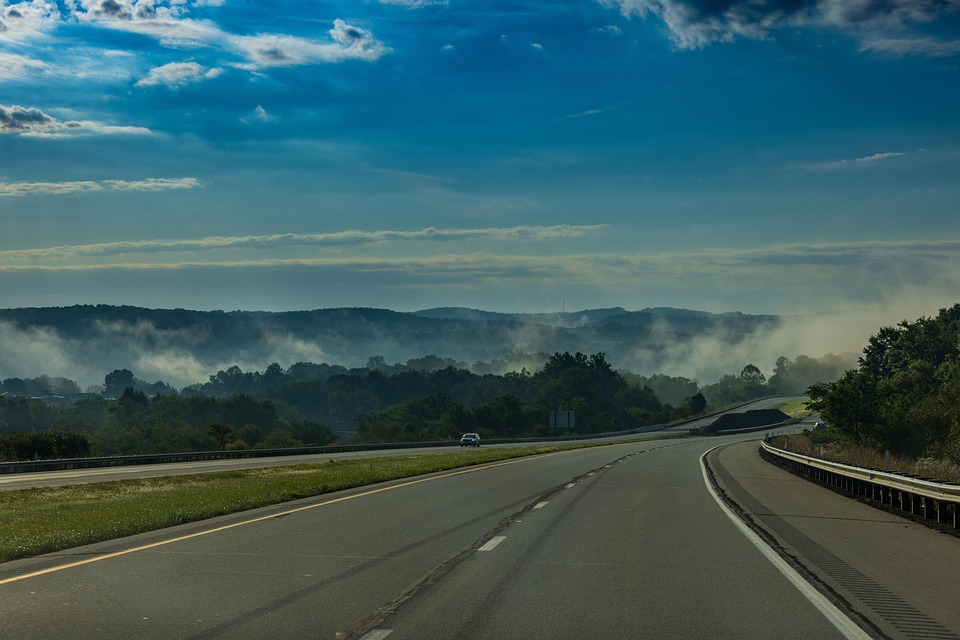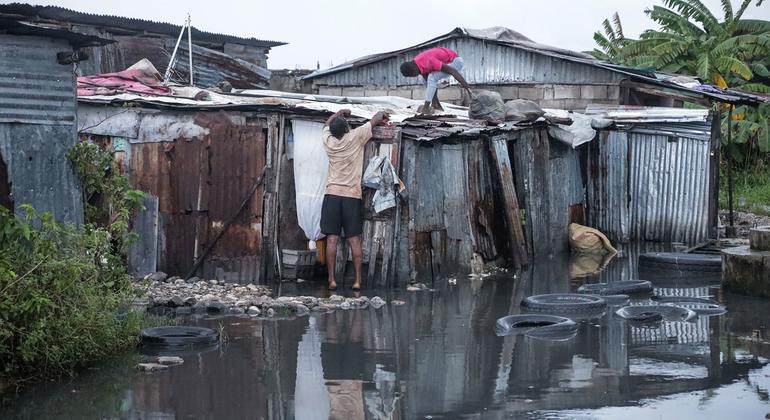Briefing of ambassadors in the Security Counciltop UN relief official Tom Fletcher said “women and girls are being raped, people are being maimed and killed – with impunity,” adding: “We don’t hear the screams, but – as we sit here today – the horror continues.»
After overrunning the last major Sudanese Armed Forces (SAF) stronghold in Darfur, which had held out for more than 500 days, RSF fighters moved from house to house, he said, with “credible reports of widespread executions” as civilians tried to escape.
Nearly 500 patients and their companions are believed to have been killed at the Saudi maternity ward, one of several health facilities targeted by the fighting.
“Tens of thousands of terrified and hungry civilians have fled or are on the move,” Mr Fletcher said. “Those who are able to flee – the vast majority of women, children and the elderly – face extortion, rape and violence during this perilous journey.»
The horror spreads
Assistant Secretary-General for Africa Martha Pobee called the fall of El Fasher a “significant shift in security dynamics,” warning that the implications for Sudan and the region as a whole are “profound.”
Fighting has already intensified in the Kordofan region, where the RSF captured the strategic town of Bara last week.
RSF and SAF drone strikes, she explained, are now hitting new targets in Blue Nile, South Kordofan, West Darfur and Khartoum. “The territorial scope of the conflict is widening,” she warned.
“The risk of mass atrocities, ethnically motivated violence and further violations of international humanitarian law, including sexual violence, remains extremely high,» Pobee told the Council.
“Despite commitments made to protect civilians, the reality is that no one is safe in El Fasher. There is no safe passage for civilians to leave the city.”
The UN human rights office, OHCHRdocumented massacres, summary executions and ethnically motivated reprisals in El Fasher and Bara. In the latter country, at least 50 civilians have been killed in recent days, including five Sudanese Red Crescent volunteers, Pobee said.
A woman searches through the burned remains of her shelter in an internally displaced persons camp in Darfur, Sudan.
History of atrocities in Darfur
“What is happening in El Fasher is reminiscent of the horrors to which Darfur was subjected twenty years ago.“said Mr Fletcher, referring to the atrocities of the early 2000s which shocked the world and ultimately led to International Criminal Court indictments.
“But somehow we are seeing a very different global reaction today – a reaction of resignation,” he continued. “It’s also a crisis of apathy.”
“The Sudanese crisis is, at its core, a failure of protection and our responsibility to uphold international law,” Mr. Fletcher said. “Atrocities are committed in the brazen expectation of impunity… the world has failed an entire generation.»
Descent into total war
The conflict in Sudan began in April 2023, when a long-simmering power struggle between the SAF and the RSF escalated into open war.
The RSF traces its roots to the Janjaweed militias accused of atrocities in Darfur 20 years ago, while the SAF represents the remnants of long-standing military rule in Khartoum.
The two forces once shared power after the ouster of former President Omar al-Bashir in 2019, but a dispute over the RSF’s integration into the national army triggered a nationwide collapse.
What began as a struggle for control of the state has since evolved into a brutal struggle marked by ethnic killings, urban siege warfare, mass displacement and starvation conditions in large parts of the country.
Sudanese refugees arrive in the border town of Adre, Chad. (deposit)
Regional overflow and humanitarian collapse
More than four million people have already fled to neighboring Chad, South Sudan and the Central African Republic, straining humanitarian operations and deepening instability in already fragile border regions.
In Sudan, more than 24 million people – more than 40 percent of the population – suffer from food insecurity. Tawila, the main destination about 50 km away for those fleeing El Fasher, is already home to hundreds of thousands of people displaced by previous attacks.
“Our teams in Tawila are seeing traumatized people arriving with shocking signs of malnutrition,” Mr Fletcher said.
“Blood on the sand. Blood on your hands
Mr. Fletcher said the Council must act “with immediate and strong action” to end atrocities, ensure safe humanitarian access and end the flow of arms that fuel the war.
“I urge my colleagues to study the latest satellite images of El Fasher; blood on the sand“, he told the ambassadors. “And I urge my colleagues to to study the world’s continuing failure to put an end to this. Blood on your hands.”
Originally published at Almouwatin.com








